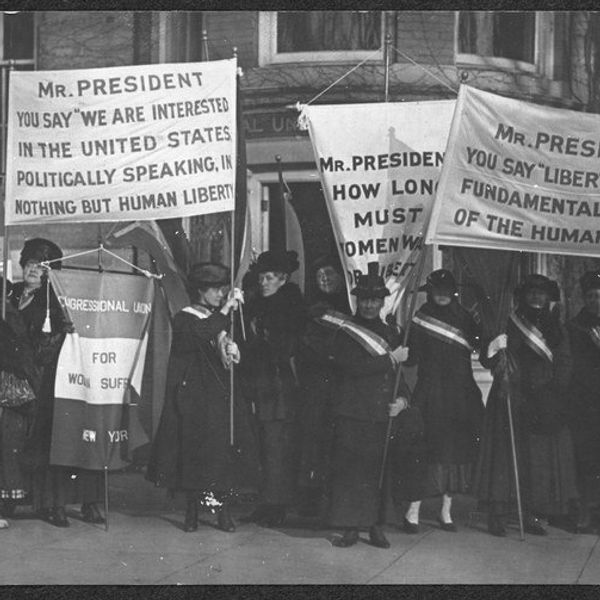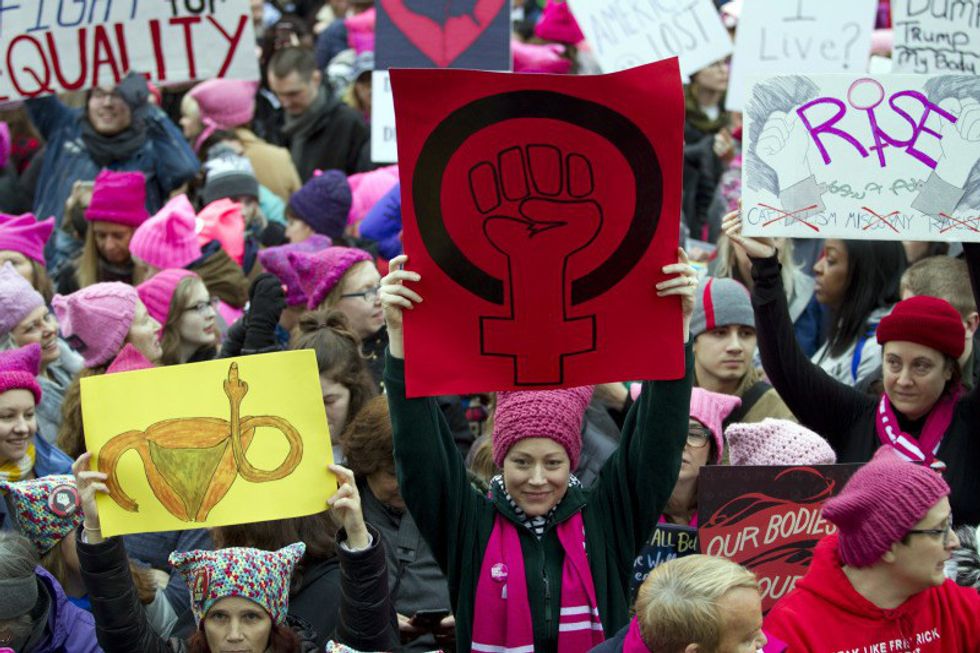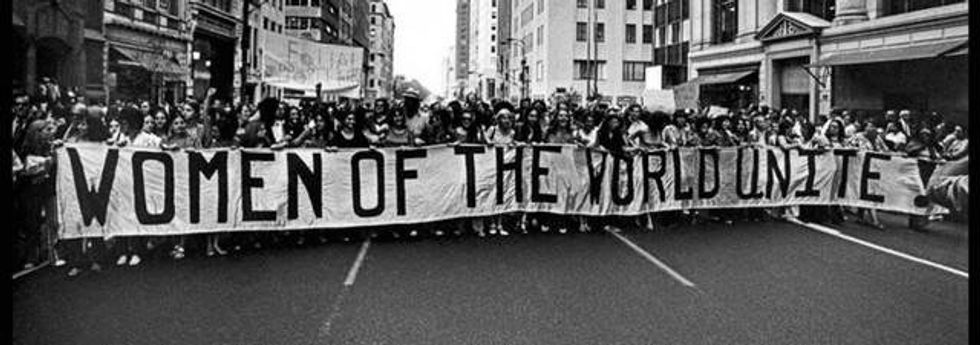In honor of international women’s day, I thought I’d write about the importance of women and how far we’ve come to raise women’s rights, and how much more can be achieved.
I am so proud to be a woman, especially when I see how strongly women of all ages are fighting for our rights, equality, and respect. The lengths some of the women of our past have gone to achieve what privileges we have now can only be repaid by respecting those privileges and continuing our fight to raise women to the standard of men in society today.
Women like Rosa Parks, Susan B. Anthony, Marie Curie, Elizabeth Blackwell, Harriet Tubman, Malala Yousafzai and numerous others have not only raised awareness of what women are capable of, but have also established their strength as women in society that are willing to enact change. Whether it was through awareness of racism, women’s rights, education, etc., these women were true to their mission to bring about change to a world that was stuck in its ways, and these are the women worth embodying as we move forward in our quest for rights and respect of women.
1. Women's Rights to Education and to Pursue Higher Education
Malala Yousafzai is a great example of a strong woman who fought hard for the right of education for young girls. She was a pillar of strength for what she endured to promote what meant so much to her. Her bravery is what touched so many lives, and helped advance her mission to bring education to all girls, especially in third world countries where the education of women beyond societal norms is considered wrong. Her work has opened doors to the advancement of women’s rights beyond just that of education to encompass rights for women to work, learn, and succeed.
Marie Curie, Elizabeth Blackwell, Sandra Day O’Connor and many other women were the first of their time to establish themselves as able women in careers that were predominantly male. Their advancements in science, medicine, law, politics, etc. were profound, especially when dealing with backlash from their male counterparts. Their perseverance through those challenges inspired women to speak up for their right to pursue male-dominated fields and explore their interests in education (both undergraduate and graduate). Their passion for knowledge and education allowed women to stand up for their right to higher education.
Currently, there are more women enrolled in college than men in the U.S. In the medical field, there has now been an increase from 9.7% of female physicians in 1970 to 32.4% in the last decade. Similarly, women now compose 33.4% of law related fields from the previous 4.9%. There has been a surge of women engineers, police/firefighters/EMS, CEOs, accountants/financial advisors, etc. than previously before. As we move to the future, we hope to continue our strive for equal representation in all careers, more opportunities for women, and more support from society to pursue these goals.
2. Women's Rights to Reproductive Healthcare
Women’s reproductive healthcare is a hot topic in society today. The rights of women to seek out medical attention for their reproductive needs is largely controlled by society, politics, and predominantly, men. It has been an ongoing struggle to allow women the right to choose their own healthcare needs.
Margaret Sanger, a political activist from New York was the first woman to actively pursue the right to birth control/contraception for women. She, along with several others, opened the very first birth control clinic and handed out free contraceptives to all women and men. Her goal was to prevent STDS/STIs, unplanned pregnancies, and overall reproductive health for safe sex. Her amazing efforts eventually led to a reproductive clinic we all know today as Planned Parenthood.
Eventually, the efforts of these women who support reproductive rights became an issue about abortion and whether it was constitutional to allow it. Presently, the ongoing efforts for and against abortion are plaguing political legislature, as women continue to stand up for their rights to choose what they want to do with their bodies, particularly for abortion. These continued efforts are an important step in the right direction for demanding more personal control of women’s own reproductive rights.
3. Women's Rights to Equal Pay
Another hot topic in society today is the demand for equal pay for women. Women today are only likely to earn 80 cents for every dollar men earn in the same profession.
This pay disparity is causing women to protest and demand for equal representation. Not much has been done on this front, as it is an issue relatively new in society today. But women are relentlessly pursuing equal rights to pay now and will continue to do so in the future.
The issue extends further than the notion of unequal pay. Studies show that women are also more likely to remain in subordinate roles and less likely to be promoted than their male colleagues. This issue, along with unequal pay, has women standing up for their rights and work ethic to be valued more highly.
4. Women's Right to Vote, Be in Government and Run for the Presidency
With Hilary Clinton's recent loss in her campaign for the presidency, it highlights some pressing issues about female presence in politics. The U.S. has yet to have a female president, while nations like Germany, Liberia, Argentina, Bangladesh, Lithuania, and several others have a female president currently in office.
This struggle for female presence in politics started with the fight for women’s right to vote. Visionaries like Harriet Tubman and Susan B. Anthony paved the road to women’s suffrage in the late 1800s. As their movement progressed, women fought for their right to positions in political offices, to run for Congress, and eventually to have a woman run for presidency. Although Clinton did not win, women continue to fight for a female presence in the high ranks of government in the hope that one day, women will be valued to and looked upon as highly as men were and still are.
5. Women's Rights to their Bodies
One of the most controversial issues society addresses today is the sexualization of women and their bodies. With advertising, media, and the entertainment industry, the sexualization of women has been a problem since the beginning of time. Women are viewed as bodies rather than people, with their purpose meant to please men visually and sexually.
Today, women like Amber Rose and Lady Gaga fight to end “slut shaming” and sexual assault. Their goal is to eradicate the stigma around women and their sexuality to prevent name calling, harassing, and sexual assault/rape from occurring. The fight to end the sexualization of women has been an ongoing struggle, similar to the struggle for reproductive rights, as society refuses to prioritize women’s feelings over traditional norms.
The hope is that one day society will remove the stigma surrounding women and the choices they make with their bodies to promote a safe, healthy environment. For now, however, society is far from that ideal. Activists are continually working to unite women and prevent hate from occurring, in the hope that women will be valued for their worth and intellect, not just for their physicality.
International Women’s Day is a day to highlight how much of an impact women have on society. They are worth more than just what they can create for the world and what they can do to please a man. Women all over the world are celebrating what it means to be a woman, and that it is not something to be ashamed of.
The future holds bright things. As the women before our time fought hard for their success, so too will the future generation. We can see how strong of an impact several women are making in society today. Our hope is that the fight to end hate is stronger than the hate itself. Women will unite together to fight against oppression, hatred, harassment, ignorance, and anger, and promote a world that is accepting of all that it means to be a woman.
As Harriet Tubman once said, “Every great dream begins with a dreamer. Always remember, you have within you the strength, the patience, and the passion to reach for the stars to change the world.”
























